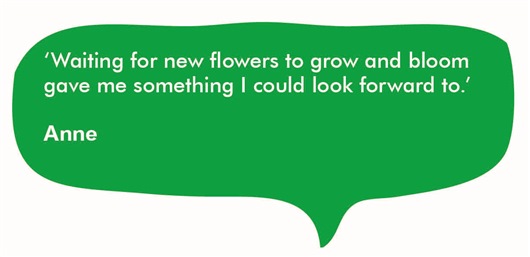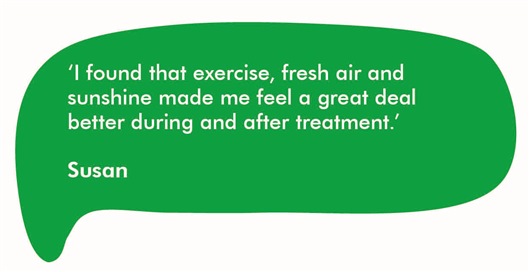It feels well overdue, but Spring has finally sprung in the UK! This week is National Gardening Week, so what better time to get green fingered? In this blog, one of our editors Lauren talks about the benefits of gardening, top tips for starting and how you can get involved with National Gardening Week.
Gardening is a great way to keep active if you’re having treatment for cancer. It can be a really rewarding and fun way to stay fit. It can especially help with some of the effects of treatment, like fatigue and depression. It can also be a great way to relax if you’re going through a stressful time.
Gardening is a good starting point if you haven’t exercised in a while, as you can start slowly and not put pressure yourself. It’s really important to try to be as active as possible during and after cancer treatment. As well as reducing the side effects of treatment, it can help look after your heart, bones and joints, and help you maintain a healthy weight. It might encourage you to eat more healthily if you are growing your own fruit and vegetables!

As with any exercise, it’s important to do it safely and within your limits. Check out our top tips for staying safe while gardening:

For more information on low-maintenance gardening if you have a health condition, check out the Royal Horticultural Society.
Keen to get started on a gardening project but don’t have a garden? We have ideas to help you. Here are other ways you can get involved:

National Gardening Week is a celebration of gardening and is encouraging new gardeners to start growing plants. There are loads of different events you can attend, or you could even host your own. For more information on how you can get involved, visit their website.
To see what else Macmillan's cancer information team has been blogging about, please visit our blog home page! You can subscribe to receive our blogs by email or RSS too.
We're with you every step of the way
The Macmillan team is here to help. Our cancer support specialists can answer your questions, offer support, or simply listen if you need a chat. Call us free on 0808 808 00 00.
Comments? Feel free to add them below (you need to be logged in).
Keep in touch Follow Macmillan’s cancer information team on Twitter @mac_cancerinfo
Whatever cancer throws your way, we’re right there with you.
We’re here to provide physical, financial and emotional support.
© Macmillan Cancer Support 2026 © Macmillan Cancer Support, registered charity in England and Wales (261017), Scotland (SC039907) and the Isle of Man (604). Also operating in Northern Ireland. A company limited by guarantee, registered in England and Wales company number 2400969. Isle of Man company number 4694F. Registered office: 3rd Floor, Bronze Building, The Forge, 105 Sumner Street, London, SE1 9HZ. VAT no: 668265007